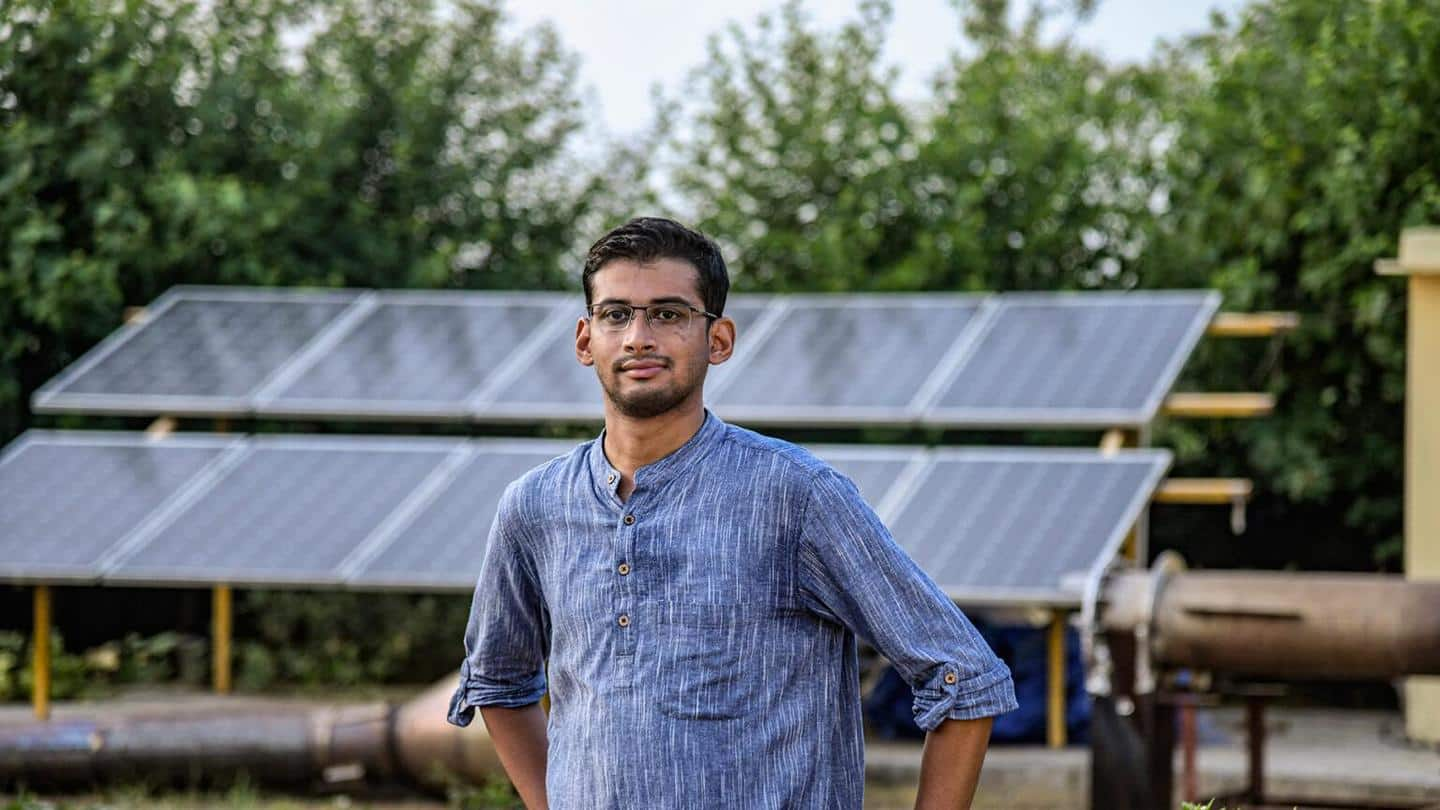
PM Modi meets engineer who could make Delhi's air cleaner
What's the story
During his two-day trip to attend the United Nations Climate Change Conference, PM Narendra Modi met Delhi-based mechanical engineer Vidyut Mohan for a brief interaction in Glasgow, Scotland.
The duo discussed a portable, cost-effective solution to the worsening air pollution crisis besieging especially the national capital, Delhi, and surrounding regions. The apparatus processes agricultural waste that would otherwise be incinerated.
Here are more details.
Description
Mohan says his creation can improve air quality, create jobs
Speaking to NDTV, Mohan explained that he and his grandmother would often fall sick due to Delhi's toxic air. So, he decided to develop a solution.
The 30-year-old's creation can be mounted on a tractor and convert tons of agricultural waste, including rice straws and coconut shells, into usable renewable fuel and fertilizers.
His innovation has won him Prince William's Earthshot Prize this year.
Theory to practice
Mohan's creation can cut carbon emission by 98%
In principle, Mohan's creation works just like a coffee roaster. The waste fed in is roasted at a controlled temperature to produce fuel, fertilizers, and other items suitable for use on the farmland itself.
His decentralized equipment was piloted in Uttarakhand and is now being tested at several locations.
The youngster even founded Takachar around his innovation.
Conversation
Interaction with Modi could help accelerate government partnership, says Mohan
Mohan said that during his two-minute interaction with Modi, he discovered that the prime minister was curious about how the machine works, how the farmers received it, and how and where it is being manufactured. "He was just so curious," Mohan quipped.
Mohan is hopeful that the interaction with PM Modi will catalyze a partnership with the government to help scale the innovation.
High hopes
Private, government collaboration essential to initiate sustainability in value chain
Mohan explained that Takachar's aim is to scale the solution as soon as possible. Additionally, he said the start-up will not be able to do so alone and would require assistance from the government and privateers so "sustainability in the value chain can be brought about."
In related news, India pledged to achieve net-zero emissions by 2070 as a nation at the COP26 summit.